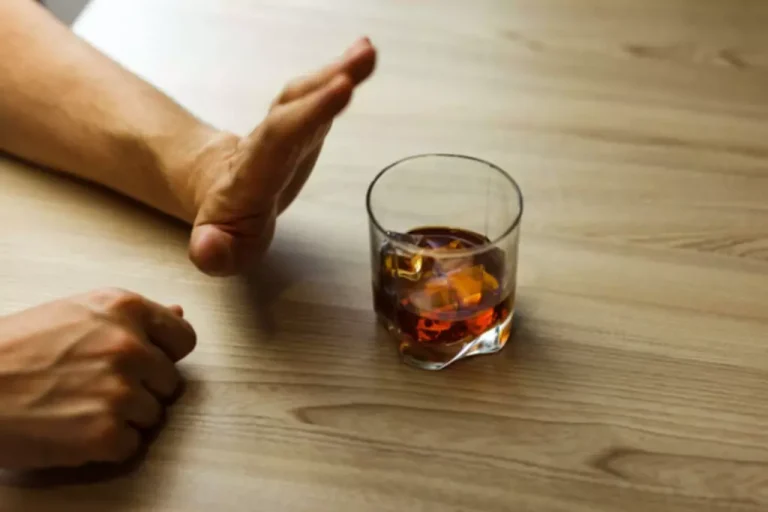Six signs youre drinking too much alcohol and what happens to your body when you quit

Engaging in creative projects like sewing or crafting can also be a great way to unwind. Drinking after work can also affect one’s social life, leading to pressure to drink and potential ostracisation from those who do not drink or are trying to cut back. It is important to find alternative ways to socialise and bond with colleagues that do not involve alcohol.
- However, it is important to note that even moderate drinking may increase health risks compared to abstaining from alcohol.
- In the end, you should feel better about indulging in the occasional cold one.
- In this regard, it is important for employees to be aware of their employer’s policies and guidelines regarding the consumption of alcohol at work.
- While it may be a way to destress after a long day, drinking after work can have hidden dangers and serious repercussions.
- Beer also increases HDL or “good” cholesterol, which helps remove harmful LDL cholesterol from the bloodstream.
Bartenders Tell Us Their Favorite Beers To Drink After Work
According to the Alcohol.org survey, 10% of bosses don’t mind getting drunk in front of employees, which greatly increases the risk of creating an uncomfortable workplace. De-emphasizing happy hour in favor of other ventures can prove to be beneficial to all involved. However, drinking patterns can change in response to stress, and alcohol can have a detrimental effect on the body’s physiological balance.
Workplace Challenges with Sick Leave and Conflict: Explained!

This goes to show that substance abuse can happen to anyone if they Alcoholics Anonymous aren’t careful. Stress in a person’s life can be the root cause of drinking and drug use. Without the proper control, a person can eventually develop an addiction. It’s important to understand the issues that can come with drinking after work and when it’s time to stop. Many drug addictions and alcohol use disorders develop without a person even noticing.
The health benefits of drinking beer after work
- Excessive alcohol consumption can lead to tolerance, dependence, and physical damage to the body.
- The NHS recommends that adults drink no more than 14 units of alcohol a week – equivalent to about six medium glasses of wine or six pints of 4% beer – and drinking should be spread across three days or more.
- If you only meant to have one or two drinks, but end up finishing an entire bottle of wine or downing a few too many pints, it can be a warning sign that you aren’t able to control your drinking.
- Stress can also increase the risk of developing alcohol use disorders.
Women, on the other hand, could start experiencing abnormal periods and mood changes, including aggression and irritability. “If you’re a young person interested in maintaining your health, I would limit your alcohol intake to current recommendations, or around one to two drinks per day,” Gall says. “The positive benefit of moderate drinking for metabolic syndrome seemed to be driven by having beer after work higher levels of good HDL cholesterol,” says study author Seana Gall, a senior research fellow at the University of Tasmania in Australia.

- This can contribute to exhaustion, brain fog, and overall lower productivity among workers.
- And, because of the nutrients in beer, Charles Bamforth, professor of malting and brewing sciences at the University of California, Davis, says “beer is in no way empty calories.”
- In Ancient Mesopotamia, beer was given to workers as rations, establishing a cultural connection between beer and manual labour.
- Always consult your doctor or pharmacist about potential drug interactions before consuming alcohol.
- Women, too, are at an increased risk of developing alcohol-induced liver injuries due to the slower rate at which they metabolize alcohol.
- These changes can compromise brain function and drive the transition from controlled, occasional use to chronic misuse, resulting in a cycle of addiction that can be challenging to break.
Drinking excessive amounts of alcohol can lead to blackouts, which are periods where you can’t remember what happened while you were drinking. Regular blackouts are a serious sign that you’ve crossed into risky drinking territory. Memory lapses during or after drinking are more than just an inconvenience; they indicate that alcohol is affecting your brain’s ability to store memories. You’ll want to focus on refueling with carbs and protein from nonalcoholic sources. Soluble fibre is a type of dietary fibre that dissolves in water and gastrointestinal fluids when it enters the stomach and intestines.
There are several stages to overcoming alcoholism and alcohol abuse. North Jersey Recovery Center offers several paths to make sure treatment is personalized and effective. Typically, all cases of addiction begin with medically assisted detox. During this stage, a person eases their way into quitting alcohol use entirely.

A 21st Century Workplace Question: To Drink on the Job, or Not to Drink on the Job?
In conclusion, while moderate beer consumption may offer some health benefits, excessive beer intake can lead to malnutrition and various health issues. It is important to prioritise a balanced diet and maintain a healthy relationship with alcohol to ensure adequate nutrition and overall well-being. The negative impact of beer on nutrition is particularly concerning for athletes or individuals https://ecosoberhouse.com/ with certain medical conditions.

It contains essential nutrients such as soluble fibre, B vitamins, and minerals like magnesium and potassium, which promote healthy bowel movements and prevent constipation. Beer is also a natural source of prebiotics, which nourish the good bacteria in the gut, supporting overall digestive health. In addition, giving up alcohol can also reduce your chances of developing liver disease, as long as your liver hasn’t already been irreversibly damaged. Alcohol is a poor post-workout beverage choice because it interferes with your body at a time it’s in overdrive trying to repair everything you broke down in the gym. Lastly, if you’re dedicated to counting calories, you should become familiar with the term “discretionary energy,” or calories leftover in an eating plan once all other nutritional requirements have been met.

Leave a Reply
Want to join the discussion?Feel free to contribute!